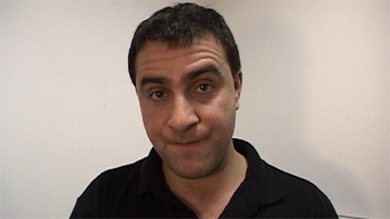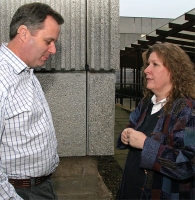Difficult Consultations course for GPs



This interactive session explores some of the difficulties associated with patients whose behaviour doctors find challenging and who may provoke strong feelings in doctors. This session was reviewed by Khyati Bakhai and last updated in July 2021.
Learning objectives
By the end of this session you will be able to:
- identify some models commonly used to describe challenging patients
- state how relevant these models are today
- reflect on your personal areas of difficulty
- discuss skills in managing awkward encounters
- describe the relationship between communication and attitude
The patient is arguably at the heart of your medical practice. Undoubtedly, though, we feel more ‘at sea’ with some patients than with others. This session invites you to reflect on what, and who, is ‘difficult’ for you. This does vary between individual doctors, so please focus here on your own thoughts and reactions.
Before commencing this session you should:
- reflect on your own adverse reactions to certain patient types, and consider where the challenges are
Connie is based at The Birmingham Medical school, and has been involved in the devising and delivery of undergraduate and postgraduate clinical communication programmes since 1991. She has extensive experience of interactive methodologies, and has worked with most postgraduate health and clinical specialities. She founded the current role play team at Birmingham, based on the outcomes of her Masters’ research. She holds a PhD on the reliability of role-play scoring in high stakes medical assessments, and is an accredited member of the Institute of Learning and Teaching. She has published on many subjects, including assessment and gender, and has presented in excess of 40 original short papers at national and international symposia.
Connie has a special interest in training videos, and co-authored, designed and produced numerous commercially available training packages. A novel DVD she produced on language use with dying patients has just been released, and she is currently compiling a book on communicating in intimate consultations.
Having trained in humanities in the 1980’s she retains her interest in performance and creative approaches to teaching, and promotes related methodologies wherever possible. Connie represents Birmingham at the UK Council for Clinical Communication, has a special interest in student selected components of the curriculum (SSCs), and is Academic Lead for the Year 4 Elective.

- General Principles course for General Practitioner...
- Posted By eIntegrity Healthcare e-Learning
- Posted Date: 2024-11-04
- Location:Online
- This session is designed to build on the other Early Developmental Support sessions. It provides a l...
- Developmental Journal Visual Impairment: Developme...
- Posted By eIntegrity Healthcare e-Learning
- Posted Date: 2024-11-04
- Location:Online
- This session describes key developmental principles for supporting the baby and child’s progress in ...
- Developmental Journal Visual Impairment: Developme...
- Posted By eIntegrity Healthcare e-Learning
- Posted Date: 2024-11-04
- Location:Online
- This session covers the progress of development, learning and vision and other senses in babies and ...
- Introducing and Using a Developmental Journal cour...
- Posted By eIntegrity Healthcare e-Learning
- Posted Date: 2024-11-04
- Location:Online
- This session gives details of the range of Developmental Journals for children and young people of d...
- An Introduction to Using Early Support Materials i...
- Posted By eIntegrity Healthcare e-Learning
- Posted Date: 2024-11-04
- Location:Online
- This session focuses on key working being implemented in practice as well as how Early Support mater...






